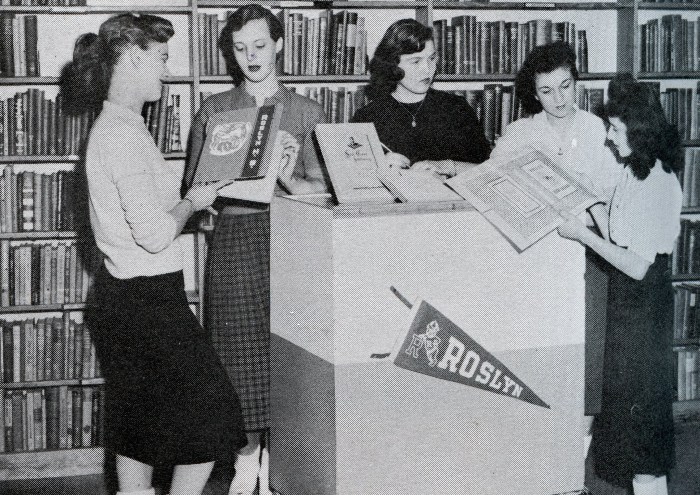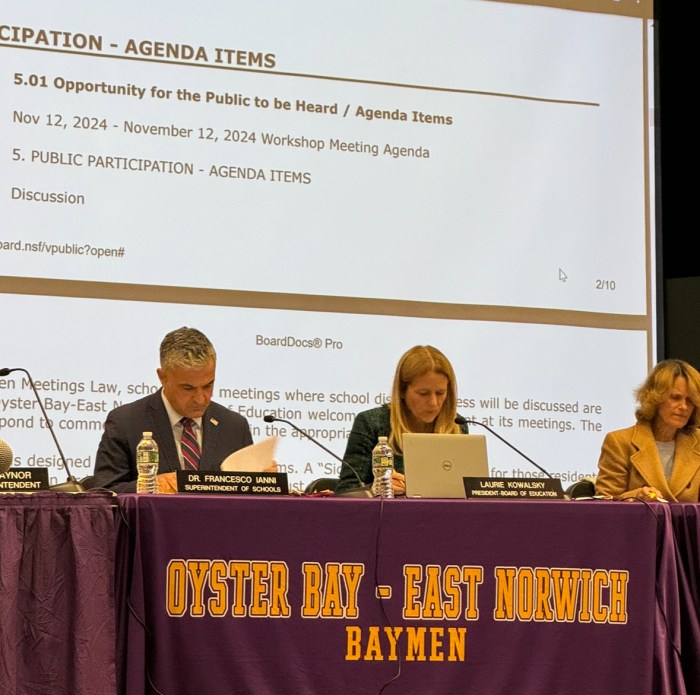
Twentieth-century English author Arthur Ransome described iconic Irish dramatist Oscar Wilde’s 1895 masterstroke The Importance of Being Earnest as something that elicits “that peculiar exhilaration of the spirit by which we recognize the beautiful,” with another critic hailing it as a piece that “came nearest to perfection.” More than 120 years after the play premiered at St. James’s Theatre in Queen Victoria’s London to a throng of socialites, bureaucrats, artists, eccentrics and literati, American college students tried their collective hand in farce. And they did so [ahem] earnestly.
From Oct. 29 through Nov. 3, Adelphi University held a seven-show run of the famous play in the campus’ 315-seat Olmsted Theatre under the direction of Dr. Brian Rose.
“Nobody’s ever done [Earnest] before as far as we’re concerned,” said the ebullient, Brooklyn-born Rose, a bastion of theater history who plied his trade on stage and in front of the camera to wide acclaim for more than two decades before teaching full time at the university. Assistant Director and Adelphi senior acting major Brittany Mills, who has a teaching feather in her proverbial cap from recently closed Atlanta nonprofit Fabrefaction Theatre Conservatory, added, “no matter the magnitude of the show, you take it as a show. It’s your show.”
Still, everyone involved was aware that scaling one of western theater’s biggest mountains demanded a reservoir of will and skill. Wilde’s play is not only a pastiche of fin de siècle London high society, replete with period-appropriate garb, dialect and mannerisms, it is a coruscating lampoon that illuminates the hypocrisy of said society and how the people who live in that milieu are affected, including the playwright himself. Quite a bit to digest.
“It’s a funny play, it’s a silly play, but [Wilde] built codes into the play, and it seems like a frothy farce but there’s actually hidden meanings in there that the audience at the time could figure out,” Rose said as he reexamined the depth and breadth of Wilde’s apogee and the challenges it would pose to his students. “…The kids need to deal with accents, and they need to deal with style, and unusual costumes—in some cases with wigs—all while learning how to do a farce, learning how to do comedy.”
Let’s throw a ball of a synopsis up in the air. The play’s first act focuses on two young Brits: upstanding and neurotic Jack Worthing (Hamid Whab) and his closest confidant, the devil-may-care Algernon “Algy” Moncrieff (Devin Irwin). In dire need of a respite from his buttoned-up life in the country, Jack invents an alter-ego, Ernest, allowing him to muck about in London with Algy, with whom he often argues. To those removed from the upper crust, Jack repeatedly needs to visit his “poor brother Ernest.”
However, Algy smells something fishy when he discovers a note in Jack’s cigarette case. Jack comes clean, and even piques his friend’s interest by mentioning that he has a beautiful young ward, Cecily Cardew (Harper LaBrozzi) back at his Gloucestershire estate. Algy is so amused that he shows up uninvited to the estate with an intention to woo Cecily, all while assuming the identity of “brother” Ernest, much to Jack’s chagrin.
Jack’s double life starts to unravel more, as his fiancée (and Algy’s cousin) Gwendolyn Fairfax (Karleigh Noelle Giguere) arrives and basically prompts Jack to admit his true identity. Reluctantly following suit, Algy confesses his own lie to Cecily. This is a major blow to the two friends’ love lives, because both Gwendolyn and Cecily are acutely smitten with the name Ernest and cannot fathom marrying someone who doesn’t bear the moniker. An additional wrench is thrown into this in the form of Gwendolyn’s mother Lady Bracknell (Carson Ferguson), whose refusal to sanction her high-born daughter marrying someone of low social status (Jack is revealed to be an orphan found by his adoptive parents in a handbag) is akin to a jet airliner turning on a dime (forgive the anachronistic reference).
Being Cecily’s guardian, Jack will not allow her to wed Algy unless Lady Bracknell changes her mind. Inconceivably, upon inspection of the handbag then-infant Jack was found in, this pickle is solved when Lady Bracknell recalls Algy’s brother—christened Ernest, of all names—becoming lost in the exact handbag, all but solidifying Jack as that lost child and an honest-to-God Ernest. Thus, the play ends with the inevitability of two happy marriages.
“It’s like a roller coaster where you feel unsafe but you know you’re safe,” said scenic designer Nick Campano, who became the first Adelphi student in seven years to design in the Olmsted, as opposed to Adelphi’s 100-seat Black Box Theatre. Campano, who created the set with turning walls so the play’s different facades and scenery can oscillate seamlessly from one act to another, stressed the importance of collaboration and empathy.
If navigation is the best word to describe a production’s meandering roads, then stage manager Cristina Correia is a regular Magellan. Handling the day-to-day operations of the play requires her to reconcile myriad ideas of the directors, designers and performers, while also dealing with marketing and logistics minutiae. This yeoman’s work is far from uncommon: wardrobe supervisor Fiona Govin fashioned the play’s costumes—original-material dresses, jackets, corsets and more—with her bare hands. And that just covers one’s typical academic duties.
Be that as it may, a Puritan work ethic is not the principal catalyst behind the play’s success.
“It’s so much fun, because [Lady Bracknell] is an iconic British character,” said Ferguson, ensconced in the joy of playing a matriarch. It started one way and it went completely opposite at some points; it’s been a roller coaster and we’ve landed here and she’s so much fun.”
The immense freeing aspect of theater is something actors live for. “I was raised in a household where it was like ‘you share, and you don’t get what you want, and if you act like you’re going to get what you want, we’re going to put you in timeout’,” Giguere said.
Alas, these talented members of the cast and crew found themselves preparing to say goodbye to a play they just got acquainted with. “That is a mind-boggling thought…on Monday [Nov. 4] we’ll see it in the dumpster,” Campano said. In the meantime, Govin noted, everyone involved was just glad to give theatergoers a great show, something that would make them laugh.
“When they finally get there and they like it…you’re like, ‘I did this for a reason.’”



























